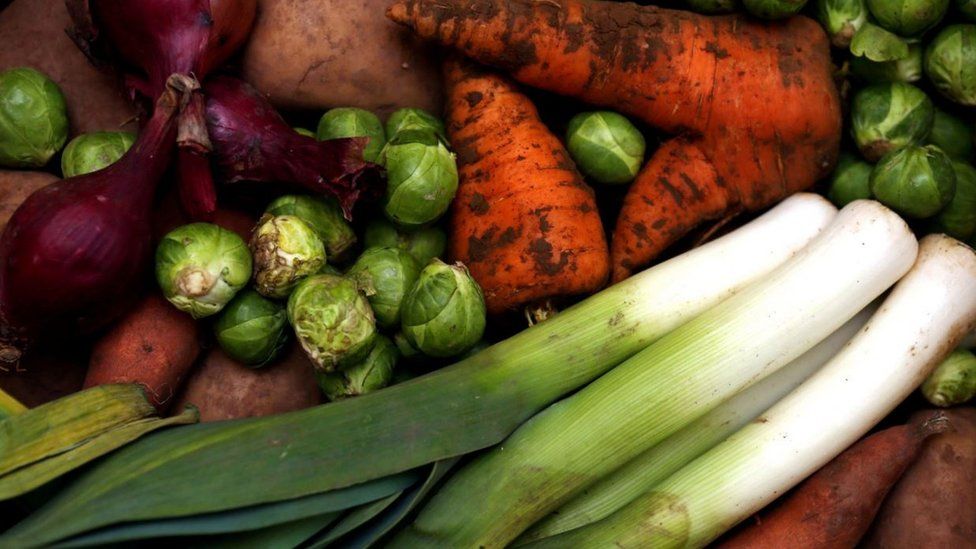Vegetarian women more likely to break hips - study
- Published

Women who do not eat meat are more likely to break their hips in later life, a study has claimed.
Researchers followed 26,000 women for about 20 years and found vegetarians in the group were a third more likely to experience fractures than meat eaters.
University of Leeds experts said some vegetarians may lack enough nutrients for good bone and muscle health, which raised the risk of breaks.
However, the study authors said people should not abandon vegetarian diets.
Researchers analysed the group of women, who were aged 35 to 69, to assess links between health and diet.
About 28% of the women followed were vegetarians and 1% were vegans.
Over the 20-year period, 822 (3%) of the women in the group experienced hip fractures.
Study lead author James Webster, said: "Our study highlights potential concerns regarding risk of hip fracture in vegetarian women.
"However, as with any diet, it is important to understand personal circumstances and what nutrients are needed for a balanced healthy lifestyle."
Mr Webster said vegetarian diets often had lower intakes of nutrients such as protein and calcium, which were usually more abundant in meat than in plants.
"Low intake of these nutrients can lead to lower bone mineral density and muscle mass, which can make you more susceptible to hip fracture risk," he said.
However, Mr Webster pointed out that vegetarian diets could vary widely from person to person and could be "healthy or unhealthy, just like diets that include animal products".
Scientists involved in the project said women could maintain bone health by not being underweight, adding nutrients like B12 to their diet and by remaining active.
Study co-author Dr Darren Greenwood said: "This study is just part of the wider picture of diet and healthy bones and muscles in older age.
"Further research is needed to explore the role of body weight, and to identify the reasons for different outcomes in vegetarians and meat-eaters."
Co-author Professor Janet Cade said the research was "an important step" in understanding the potential risk plant-based diets could present over the long-term and "what could be done to mitigate those risks".
Researchers said further work was needed to assess whether similar results could be found among men.
Follow BBC Yorkshire on Facebook, Twitter and Instagram. Send your story ideas to yorkslincs.news@bbc.co.uk.
Related Topics
- Published8 October 2021
- Published27 November 2023
- Published7 November 2018